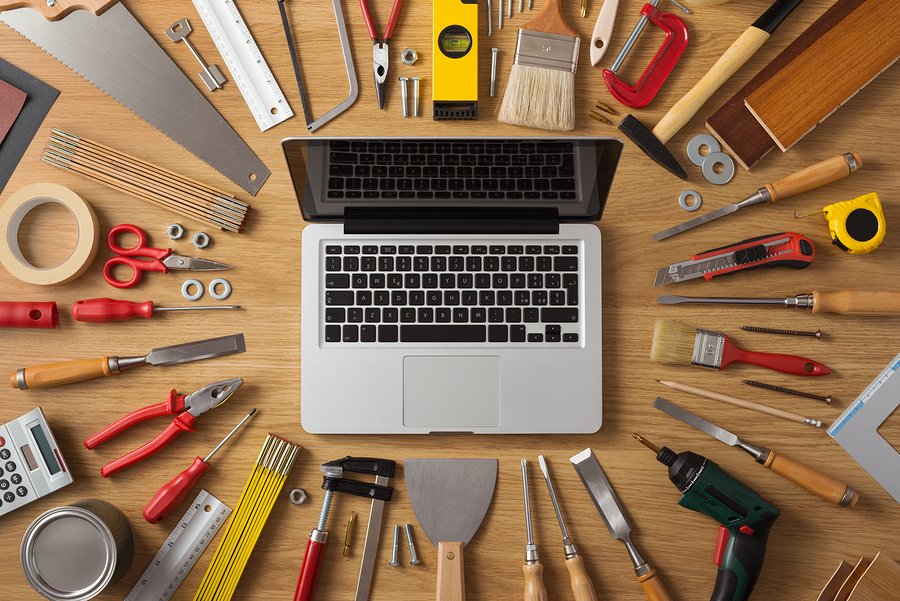
The main driving force behind every retail business is the staff. Without staff, your store can’t run. That’s why investing in your staff is the most important thing you can do for your retail business. When you have enthusiastic and productive staff, sales will soar. With disengaged staff, your business suffers. Here are 5 ways to maximize staff productivity in your retail store.
1. Hire The Right Staff
In any business, be it retail or other, it’s vital to hire the right staff. Because working in a retail store doesn’t require extensive qualifications, retailers tend to hire staff quickly and with minimal scrutiny, especially during crunch periods like the holiday season. Store managers should, however, still hire carefully.
In-store staff, especially the front-line staff, represent your brand and can make or break it. Customers are sensitive to service. Unattended customers, unfriendly service, and slow checkouts lead to complaining customers who will eventually stop shopping at your store.
The human resources department should develop a well-rounded recruitment process for stores to follow. If you own a small store, there are recruitment software that allows you to manage the process yourself. Alternatively, you can outsource to an agency that specializes in retail staff recruitment.
2. Train Staff Thoroughly
Training is key to staff productivity. The retail industry is fast-moving and staff need to meet customer demands quickly and efficiently. They can’t do that without proper training. Staff should be schooled in every aspect of the business. This includes in-depth knowledge of the products and brand, an understanding of the customer profile, and broader knowledge of the industry.
Training shouldn’t stop with induction. Invest in the ongoing training and development of your staff. It helps keep them motivated and provides an incentive to remain with the company if continued training will open up opportunities to advance up the ranks.
3. Communicate Effectively
One of the biggest stumbling blocks to retail productivity is poor communication. Stores don’t operate in a vacuum. The management at headquarters makes decisions and passes those decisions down to stores to implement. Sometimes this means action needs to be taken the next day. Inefficient communication systems are one of the main reasons next-day tasks are not carried out.
If the line of communication is an email from headquarters to busy store managers who only check emails occasionally during the day, most stores probably won’t implement the action promptly. If it’s a promotion that stores only start running a few days later, that’s a loss of potential sales.
A quick way to deliver information to staff is in a pre-shift meeting. Pre-shift huddles are also a great way to encourage and praise staff, ask for feedback, and pump up the vibe.
Another way to improve communication is with a platform that allows everyone in the company to interact. An app like Zipline centralizes communications and streamlines task management to speed up the execution of tasks. The app allows for cross-communication between stores and with headquarters so that everyone is on the same page at the same time.
4. Give Staff The Best Tools For The Job
Productivity input is directly related to profit output. However, staff can only do so much with the tools at their disposal. If you have an outdated point-of-sale system, inaccurate inventory keeping, and a poor communication system, it limits staff productivity.
The latest retail software enables easy reporting, are often cloud-based, and can automate certain tasks. If your store frequently runs short on stock, upgrading to a more efficient inventory system can alert staff when stocks are low so that they can reorder before it runs out.
If there’s a bottleneck at the checkout counters over peak periods, equipping your sales staff with roving handheld scanners to process a sale anywhere in the store is a great way to expedite sales.
5. Foster a Culture That Motivates Staff
Retail is known for low employee engagement and high staff turnover. In the U.S., staff turnover in the retail sector is at 60% compared to 15% in other industries.
An undervalued employee isn’t a productive employee and won’t think twice about moving on to another job. That’s why fostering a company culture that appreciates and recognizes staff performance is important. It helps motivate and inspire staff to give their best to the company.
Team building is one way to improve employee engagement and create camaraderie among employees. This can involve anything from taking the team out for a fun activity to sales competitions with rewards like gift vouchers or bonus pay. When employee engagement increases, so does productivity.
Brick-and-mortar stores face a challenge against online stores. The crucial difference between the two is face-to-face interaction with customers. Many shoppers still enjoy browsing a physical store but most won’t hesitate to shop online if in-store service isn’t to their satisfaction. Keeping staff motivated and engaged ensures customers return time after time.
This is an article provided by our partners network. It does not reflect the views or opinions of our editorial team and management.
Contributed content

IntelligentHQ Your New Business Network.
IntelligentHQ is a Business network and an expert source for finance, capital markets and intelligence for thousands of global business professionals, startups, and companies.
We exist at the point of intersection between technology, social media, finance and innovation.
IntelligentHQ leverages innovation and scale of social digital technology, analytics, news and distribution to create an unparalleled, full digital medium and social business network spectrum.
IntelligentHQ is working hard, to become a trusted, and indispensable source of business news and analytics, within financial services and its associated supply chains and ecosystems.





























